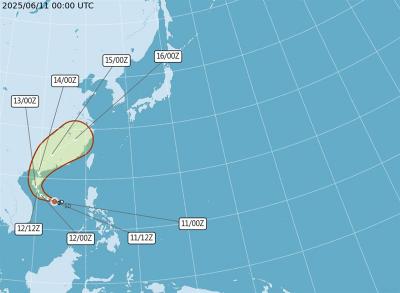An online post by an anonymous netizen claiming to have undergone dental restoration and teeth whitening using a special patented technique in South Korea has been disputed by several Taiwanese dentists.
The netizen claimed the dental technology called “Minish” restores and whitens teeth in just a day, resulting in beautifully aligned, white teeth.
However, local dentists said that the netizen probably received ceramic veneers and that the treatment is not suitable for everyone.
Chen Ying-yu (陳映瑜), a part-time physician at National Taiwan University Hospital’s Department of Dentistry, said porcelain or ceramic veneers are thin ceramic layers cemented over the teeth with bonding agents to improve the aesthetics, but the procedure — from taking measurements, to trimming the teeth, taking an impression and checking the fit — takes about one to two weeks and requires the patient to receive follow-up medical care.
“People who have poorly aligned teeth would need to trim many parts of their teeth to place ceramic veneers and the trimmed tooth enamel does not not recover,” Chen said. “Trimming too much can irreversibly damage the nerves of the teeth.”
Huang Mao-shuan (黃茂栓), Taipei Medical University Shuang Ho Hospital Department of Dentistry director and an executive council member of the Taiwan Dental Association, said the so-called “patented technology” is common ceramic veneer placement, which many in the entertainment industry use to improve the look of their teeth.
The cost of ceramic veneer placement varies from NT$10,000 to several times that price for each tooth and the technique is not a special patented technology, Huang said.
The technique is not patented, but the devices and materials used in the procedure could have been patented, and many aesthetic medical clinics use computerized devices to take measurements and produce customized ceramic veneers that better fit patients’ teeth, he said.
Consumers’ Foundation chairman Yu Kai-hsiung (游開雄) said the procedure is not classed as a medical treatment, but is considered a commercial treatment, so the price can vary according to the dentist’s skills, facilities and equipment, as well as the consultation provided.
Therefore consumers should compare the prices and quality of different clinics, and choose those with the best reputation if they are seeking aesthetic procedures, Yu said.
Consumer Protection Commission Deputy Director-General Wu Cheng-hsue (吳政學) said people who are seeking aesthetic medical procedures in other nations should choose those with legal protestions, so that their consumers’ rights are protected if disputes occur.
Ministry of Health and Welfare Department of Medical Affairs Director-General Shih Chung-liang (石崇良) said that anyone who recommends or promotes medical procedures online faces a fine of up to NT$250,000 for violating the Medical Care Act (醫療法).
The ministry monitors online medical ads, but reports of violations from the public are also welcomed, Shih said.

A magnitude 6.4 earthquake struck off the coast of Hualien County in eastern Taiwan at 7pm yesterday, the Central Weather Administration (CWA) said. The epicenter of the temblor was at sea, about 69.9km south of Hualien County Hall, at a depth of 30.9km, it said. There were no immediate reports of damage resulting from the quake. The earthquake’s intensity, which gauges the actual effect of a temblor, was highest in Taitung County’s Changbin Township (長濱), where it measured 5 on Taiwan’s seven-tier intensity scale. The quake also measured an intensity of 4 in Hualien, Nantou, Chiayi, Yunlin, Changhua and Miaoli counties, as well as

Taiwan is to have nine extended holidays next year, led by a nine-day Lunar New Year break, the Cabinet announced yesterday. The nine-day Lunar New Year holiday next year matches the length of this year’s holiday, which featured six extended holidays. The increase in extended holidays is due to the Act on the Implementation of Commemorative and Festival Holidays (紀念日及節日實施條例), which was passed early last month with support from the opposition Chinese Nationalist Party (KMT) and Taiwan People’s Party. Under the new act, the day before Lunar New Year’s Eve is also a national holiday, and Labor Day would no longer be limited

COMMITMENTS: The company had a relatively low renewable ratio at 56 percent and did not have any goal to achieve 100 percent renewable energy, the report said Pegatron Corp ranked the lowest among five major final assembly suppliers in progressing toward Apple Inc’s commitment to be 100 percent carbon neutral by 2030, a Greenpeace East Asia report said yesterday. While Apple has set the goal of using 100 percent renewable energy across its entire business, supply chain and product lifecycle by 2030, carbon emissions from electronics manufacturing are rising globally due to increased energy consumption, it said. Given that carbon emissions from its supply chain accounted for more than half of its total emissions last year, Greenpeace East Asia evaluated the green transition performance of Apple’s five largest final

The first tropical storm of the year in the western North Pacific, Wutip (蝴蝶), has formed over the South China Sea and is expected to move toward Hainan Island off southern China, the Central Weather Administration (CWA) said today. The agency said a tropical depression over waters near the Paracel and Zhongsha islands strengthened into a tropical storm this morning. The storm had maximum sustained winds near its center of 64.8kph, with peak gusts reaching 90kph, it said. Winds at Beaufort scale level 7 — ranging from 50kph to 61.5kph — extended up to 80km from the center, it added. Forecaster Kuan Hsin-ping